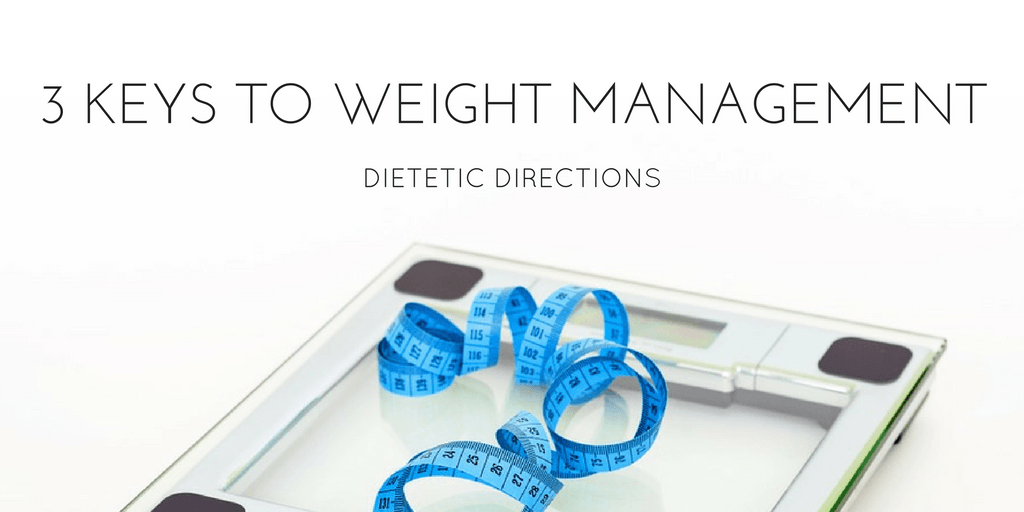
Three Keys to Weight Management
Did you know that two out of three adults are either overweight or obese? Moreover, every one of us is at risk for gaining weight. In fact, the average adult gains one to two pounds each year. These small (often unnoticed weight changes) can accumulate and may increase risk of developing heart disease, diabetes and several cancers, especially colon and post-menopausal breast cancer.
The good news is that changes to our diet and lifestyle can help prevent weight gain, help us to lose weight or to keep off the weight we’ve already lost. Remember that changing our lifestyle and making new healthy habits takes time, concerted effort and consistency. This is because there are no “quick fixes” or “magic bullets”, despite what Dr. Oz and the Internet may tell you.
Key #1: Gradually Implement Sustainable Change
For weight management success, it is vital to implement changes that will be sustainable. Therefore, before getting started, ask yourself if you are you ready to make a lifelong (diet or physical activity) change. This means that you will steer clear of the strict, crash diets or extreme workout regimes that are too rigorous to continue long-term.
It is vital to implement changes that will be sustainable. Click To TweetWhen you have decided that you are in it for the long haul, you then want to implement changes gradually. At a conference this past weekend, the keynote speaker highlighted the importance of starting with one change and then adding another after the first is complete or a habit. He spoke about how people can accomplish more than they ever thought possible when they are not overwhelmed with trying to change everything all at once. Here are tips to get started and avoid All or Nothing Mental Sabotage, the most common type of thought-distortion.
Key #2: Be “Health Focused” vs. “Weight Focused”
When implementing lifelong health behaviour changes, it is essential to be “health-focused” instead of merely “weight-focused”. If we are only driven by the number on the scale or yearning to look like a photo-shopped celebrity, we are likely to feel frustrated and deflated. Let’s face it, in our society, people spend lots of money and endless energy being “weight focused” and hard on themselves instead of being “health focused” and proud of themselves for making impactful changes. Bodies come in all different shapes and sizes and by being “health-focused” you will be able to direct your energy on nurturing yourself and making lasting changes for a healthier tomorrow.
For lifelong health behaviour changes, it is essential to be health-focused vs. weight-focused Click To TweetKey #3: Keep your Metabolism Revving!
Did you know that metabolism slows when you cut calories? Likewise, our bodies’ burn fewer calories per minute at rest when we lose weight. Additionally, loss of muscle mass also decreases metabolism. According to the Centre for Science in the Public Interest, about 25 per cent of the weight that dieters lose is lean (muscle) mass. This loss of muscle tissue lowers our metabolism or the number of calories we are burning.
In order to keep your metabolism revving, emphasize meal regularity (avoid going long periods without eating) and implement resistance-training exercises like Pilates or free weights. Keep in mind that muscle weighs more than fat. Don’t be alarmed if for this reason you notice a slight weight increase. You are shifting body composition to be higher in calorie burning muscle. However, being “heath-focused”, you will not be defeated or critical of yourself knowing that you’re actually making progress!
Bottom Line:
Tony Robbins has said, “It’s not what we do once in a while that shapes our lives, but what we do consistently.” Weight management is contingent upon making sustainable, lifelong changes and keeping a “health-focused” attitude that is rooted in self-love. By staying mindful of metabolism you can maintain your lean body mass. Last, if you are looking for professional guidance, be sure to team up with a Registered Dietitian for support along your journey!



